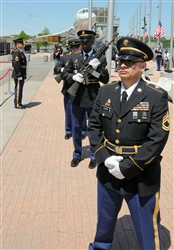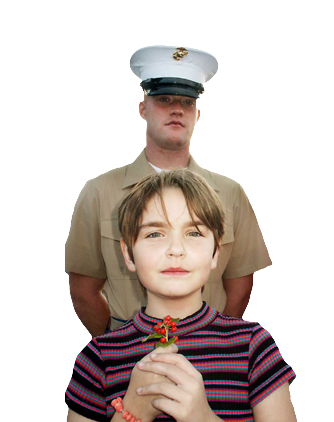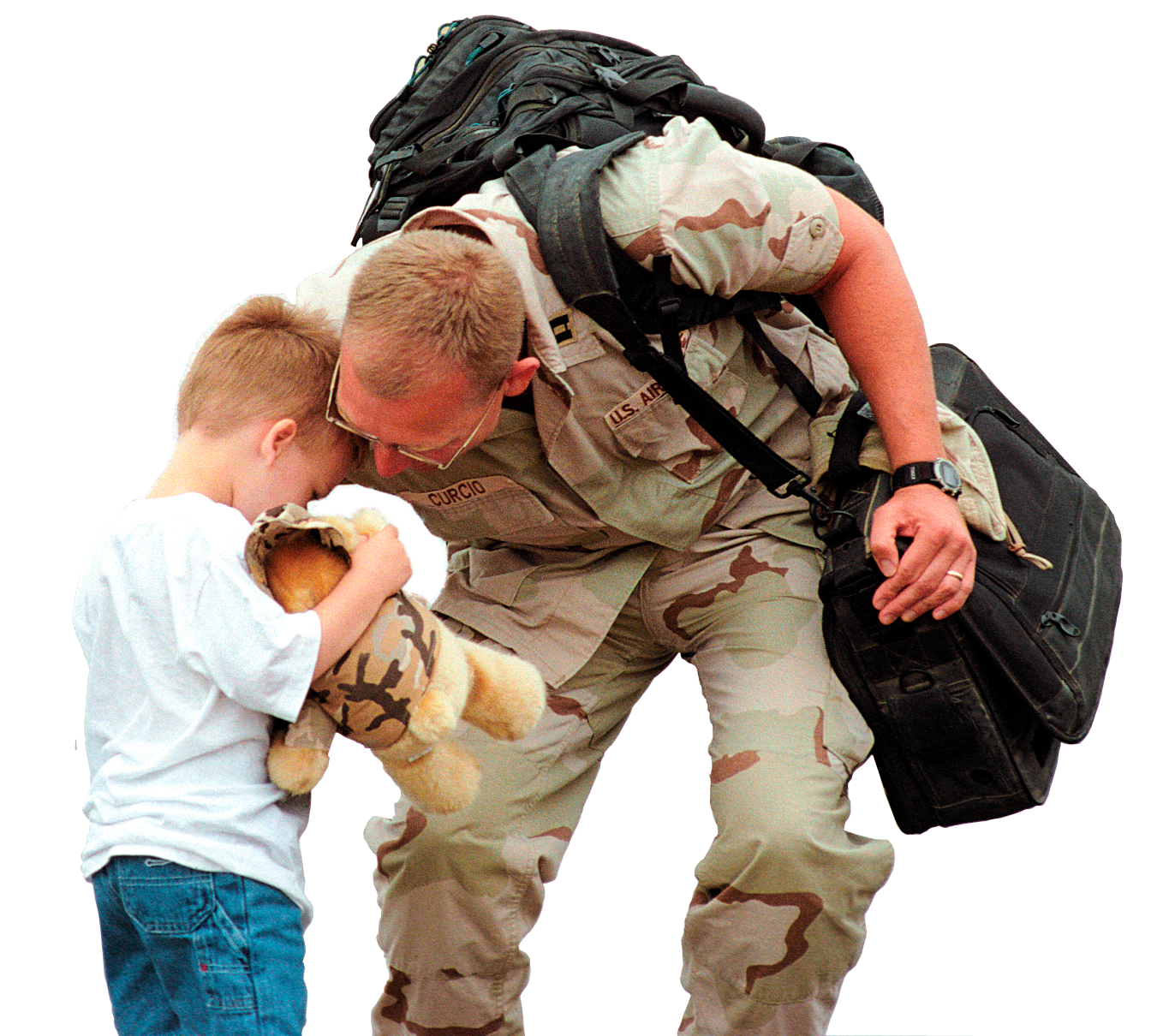 PHOTO: Army Sgt. 1st Class Jose Flores leads the rifle team from the Army Reserve’s 99th Regional Support Command during the Memorial Day commemoration at the Intrepid Sea, Air and Space Museum in New York, May 27, 2013. JOINT BASE MCGUIRE-DIX-LAKEHURST, N.J., Oct. 14, 2014 – Army Sgt. 1st Class Jose Flores locked his rifle’s bolt to the rear, placed the butt of the weapon firmly against his shoulder, took aim and fired over the bow of an aircraft carrier in New York Harbor. Volunteering to go the extra mile in his military career is something Flores credits to his background as a Hispanic-American and combat-arms soldier. U.S. Army photo by Staff Sgt. Shawn Morris It was Memorial Day at the Intrepid Sea, Air and Space Museum in Manhattan, and Flores and his fellow honor guard soldiers were firing the first volley of blank rounds in a 21-gun salute to their fallen brethren. Going the extra mile This wasn’t the first time Flores -- a native of Nicaragua and a 16-year Army veteran -- participated in such a ceremony.
PHOTO: Army Sgt. 1st Class Jose Flores leads the rifle team from the Army Reserve’s 99th Regional Support Command during the Memorial Day commemoration at the Intrepid Sea, Air and Space Museum in New York, May 27, 2013. JOINT BASE MCGUIRE-DIX-LAKEHURST, N.J., Oct. 14, 2014 – Army Sgt. 1st Class Jose Flores locked his rifle’s bolt to the rear, placed the butt of the weapon firmly against his shoulder, took aim and fired over the bow of an aircraft carrier in New York Harbor. Volunteering to go the extra mile in his military career is something Flores credits to his background as a Hispanic-American and combat-arms soldier. U.S. Army photo by Staff Sgt. Shawn Morris It was Memorial Day at the Intrepid Sea, Air and Space Museum in Manhattan, and Flores and his fellow honor guard soldiers were firing the first volley of blank rounds in a 21-gun salute to their fallen brethren. Going the extra mile This wasn’t the first time Flores -- a native of Nicaragua and a 16-year Army veteran -- participated in such a ceremony.
Volunteering to go that extra mile is something he credits to his background as a Hispanic-American and as a combat-arms soldier. “With a Spanish upbringing, especially if you’re coming from another country, you’ve got to be able to go above and beyond, such as learning the culture, learning the language,” said Flores, who came to the United States when he was 4 years old. “Once you do that, you also have to remember your roots.” Each year from Sept. 15 to Oct. 15, National Hispanic Heritage Month celebrates the histories, cultures and contributions of American citizens with ancestors from Spain, Mexico, the Caribbean and Central and South America. The theme of this year’s observance is, “Hispanics: A Legacy of History, a Present of Action and a Future of Success.” Striving to do better “‘You must try to be better’ is drilled down in our culture,” Flores said, recounting a bit of his own history. “Growing up, they always tried to push you, push you, push you to try to be better.
“The biggest thing in Hispanic culture is family, and I do everything for my family,” he continued. “And with the military being a big part of my life, I consider the military a kind of family also.” Flores serves as a finance noncommissioned officer with additional duties as the physical security and voting officer for the Army Reserve’s 99th Regional Support Command, headquartered here. He also works for the 99th RSC in his civilian career. “Being in the military gives you a sense of place, especially if you had the proper mentorship when you first came in,” Flores said. “I was lucky enough to have key leadership when I first joined the military. I went straight to a combat unit, and the leadership developed me into who I am now.” Military mentorship That leadership “mentored me; they showed me how a good leader leads,”said Flores, a husband of 10 years to his wife, Ki, with whom he has two children, Raymond and Sofia. Today, Flores continues to mentor and lead those with whom he serves, sharing the sense of duty instilled within him by both his cultural and military upbringing. “If there’s a mission, and you’re an NCO, figure out how to do it,” he explained. “We have personnel who are always doing the mission, because it needs to be done.”
Written Oct. 14, 2014 By: Army Staff Sgt. Shawn Morris 99th Regional Support Command
Republished and redistributed by permission of DoD.






